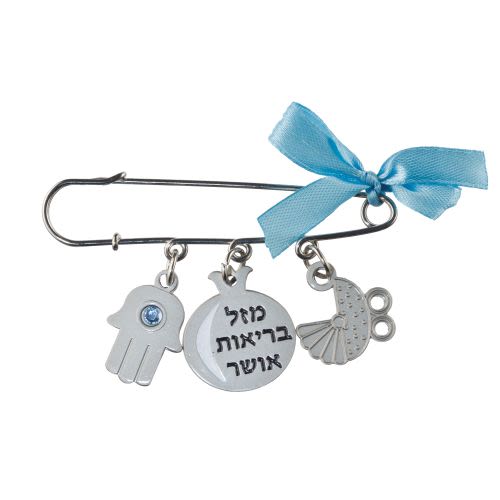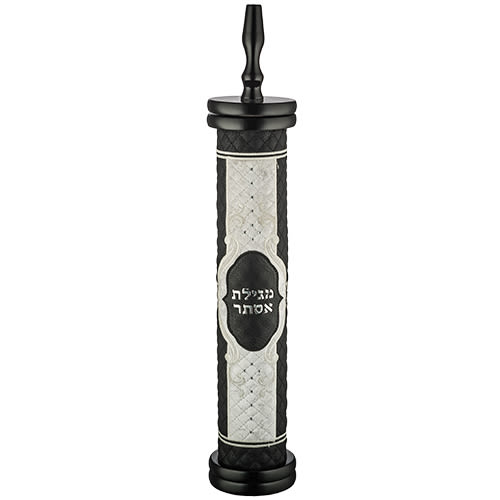
My Reality Show
Psychological Distancing is a technique that gives you an instant mental escape, a few precious moments to prevent yourself from falling into the same reactive patterns...

Sometimes I take a step back and look at my life objectively. The consistent thought that keeps coming to my mind is, “Your family would be perfect for a reality show. Sign here!…And here….and here…” Yes, we’ve definitely got the formula for success… Today I was fortunate to listen in on Dr. Zev Ballen’s Emuna Parenting conference call. He takes Rav Arush’s insights and combines them with his 30+ years as an experienced Psychotherapist, and voila– great parenting advice!
The topic of the day was “Psychological Distancing” and how to use it properly in a tough situation involving your children. My first thought was that it had a negative connotation, like that I should shut down emotionally when I get upset with my kids. But it’s not at all like that! Psychological Distancing is a technique that gives you an instant mental escape, which gives you a few precious moments to prevent yourself from falling into the same reactive patterns over and over again. For example, if you feel you’re almost at the point of yelling at your kid because he threw yet another toothbrush in the toilet, you do something to pull yourself out of the situation as fast as you can.
There are several ways Dr. Ballen suggested you do this. (Un)fortunately, none of them include taking a swig of your favorite drink. One  way is to close your eyes and imagine yourself in a faraway place. Let your senses take you to a tropical beach, where you suddenly find yourself lazily stretching out on a chaise lounge, contemplating the myriad shades of sparkling blue and green water. Let your breathing ebb and flow with the sound of the waves gently breaking against the glistening, powdery seashore. With each breath, feel yourself getting calmer and calmer. Do this for a minute or two, then bring yourself back to the situation.
way is to close your eyes and imagine yourself in a faraway place. Let your senses take you to a tropical beach, where you suddenly find yourself lazily stretching out on a chaise lounge, contemplating the myriad shades of sparkling blue and green water. Let your breathing ebb and flow with the sound of the waves gently breaking against the glistening, powdery seashore. With each breath, feel yourself getting calmer and calmer. Do this for a minute or two, then bring yourself back to the situation.
Another way to distance yourself is through physical means. Just walk away for a few minutes. Go outside or to another private room and take a few deep breaths. Remind yourself that this is just a test from Hashem and ask Him to help you pass it. This is a great moment to pinpoint exactly where your weakness is. Are you so angry you want to beat someone? Or do you find yourself drowning in self-pity and depression? Maybe you emotionally shut down. If you’re like me, you might answer “D: All of the above.” Whatever your overwhelming reaction, now is the perfect time to beg Hashem to help you fix it.
There is a third way, which is quite entertaining… The other night, I was doing dishes in the kitchen, and my two older ones were fighting in the living room. Big surprise. But then, my younger one pulls an Iraqi card on the older one, and in a nanosecond he had a broom in his hands, ready to strike. Before I could even react, a television screen flashed in front of my face. Next thing I knew, I was watching the most entertaining reality show I had ever seen! All of a sudden, my perception completely changed. I went from an angry and stressed-out referee to a highly entertained bystander. “Yeah, hit him, hit him!” I almost yelled, as I watched my kids chase each other around and around the couch. I could almost hear the Benny Hill theme song playing in the background. “This family is crazy!” I thought, reveling in my holier-than-thou attitude. I couldn’t wait for the commercial so I could call my best friend and have a lashon hara-fest about this dysfunctional family.
The mind is a powerful thing. In a split second, I was able to remove myself from the situation, albeit in a very strange way, and not suffer from the Iraqi fallout. No racing heartbeat, no boiling blood, no sore throat…not bad! I realized that the result is usually the same, with or without my intervention. Anyways my kids are going to maul each other. They’re going to fight and scream and drive me crazy every single day. I’ve got to stop expecting otherwise.
Another time I was playing the piano when The Broominator showed up, ready to swat his brother into a two-dimensional statue. They whizzed by as I played, and I simply ducked as the blurry pink broom/samurai sword twirled like a revolving blade two inches above my head. Who knew he was so talented? I saw that if my mind was somewhere else, disconnected from the situation, I wouldn’t feel compelled to get involved…unless the screams surpassed 125 decibels.
The time I enjoy disconnecting the most is when my husband gives the kids a bath and puts them to bed. It’s almost like a night out on the town, except the background chatter of other people having dinner is more like, “Get back in that bed and BE QUIET!!!” What can I say? It’s my guilty pleasure… I guess misery really does love company! No, I’m not miserable, but I do thoroughly enjoy when my husband experiences firsthand how hard it is to be a mom- at least in this area. Really, though, I do wonder why the kids’ rambunctiousness doesn’t phase me when I’m not the one disciplining them. I mean, they’re still in my house! I’m not getting any peace and quiet! But I guess I shouldn’t push my luck.
In trying this new technique, I have to admit it’s very hard, and I only succeeded about two times. But, nonetheless, I’m going to keep trying- because even one time makes all the difference at that moment. For a greater understanding of the parent/child dynamic, listen to Rabbi Brody’s wonderful CD’s, “The Family Connection”, “All In The Family”, and “Educating Children With Love”.












8/22/2012
at home antics…. Rav Arush once noted 4 different types of children; those who are good both at home and outside it (rare), those who are bad both at home and out (problem), those who are good in, but bad out (problem), and those who are bad in but good out. The most normal kids are those who regularly play up at home, but are really pretty well behaved when they are in the outside world. Kids who are allowed to release the tension of "behaving" all day, with normal limits, in their homes, are healthy kids.
8/22/2012
Rav Arush once noted 4 different types of children; those who are good both at home and outside it (rare), those who are bad both at home and out (problem), those who are good in, but bad out (problem), and those who are bad in but good out. The most normal kids are those who regularly play up at home, but are really pretty well behaved when they are in the outside world. Kids who are allowed to release the tension of "behaving" all day, with normal limits, in their homes, are healthy kids.